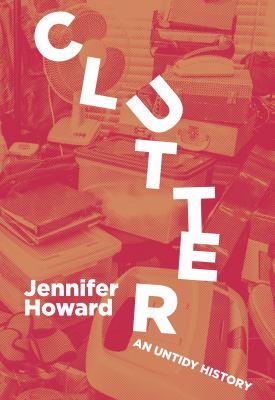
Clutter : an untidy history
Offers a fascinating and insightful account of what becomes of the stuff that we accumulate in our homes and lives. It's a powerful reminder of how the deeply personal acts of daily life are shared across families, cultures, economies, and countries, and an account of how one author's struggle to manage her family's clutter led to a deeper understanding of what matters most in all of our lives
Available Copies by Location
| Location | |
|---|---|
| Victoria | Available |
Browse Related Items
- ISBN: 9781948742726
- Physical Description 176 pages ; 20 cm
- Edition First edition.
- Publisher [Place of publication not identified] : [publisher not identified], 2020.
Content descriptions
| Bibliography, etc. Note: | Includes bibliographical references. |
| Formatted Contents Note: | Finder keepers: hoarding disorder and shame -- Material world: the Victorian roots of consumer culture -- Shop and drop: from mail-order catalogs to Amazon Prime -- A place for everything: the eternal war on disorder -- Waste, want, and wealth: decluttering as activism and entrepreneurship -- Final destinations: clutter as junk and eco-catastrophe. |
Additional Information

Kirkus Review
Clutter : An Untidy History
Kirkus Reviews
Copyright (c) Kirkus Reviews, used with permission.
A veteran journalist explores our messy lives. In this illuminating sociological study, Howard, a former contributing editor and columnist for the Washington Post, begins with the discovery that her mother had been living for years in a hoarder's den. "Squalor and chaos have infiltrated every room--upstairs, downstairs, attic, basement," she writes. "No space has been left untouched." Howard then delves into the sordid history of clutter, looking at the intriguing case study of Homer and Langley Collyer, whose Harlem brownstone, in the 1920s and '30s, "became a death trap of neck-high junk, including hundreds of thousands of newspapers." In 1947, Langley was crushed under the clutter; Homer, "blind and bedridden and dependent on his brother, starved to death." The author also explores how industrialization helped create the birth of consumer culture as well as the complex psychology of overconsumption in modern-day capitalism. Howard's research is thorough, and the prose is clear, well written, and inviting rather than being judgmental, even if she's exploring complex issues such as activism, entrepreneurship, and the potential impact of clutter on the future of the planet. In addition to her historical narrative and contemporary analysis, the author includes commentary from a variety of interesting characters, including New Yorker and Kirkus Prize--winning cartoonist Roz Chast, British author Matt Haig ("there is, in the current world, an excess of everything"), and even Oscar Wilde: "Have nothing in your house that is not useful or beautiful; if such a rule were followed out, you would be astonished at the amount of rubbish you would get rid of." Like George Carlin's infamous riff on "A Place for My Stuff," Howard's exploration of one dark corner of consumer culture is quick-witted and insightful--and, appropriately for the subject, refreshingly concise. The author also discusses the phenomenon of the "mild-mannered Japanese organizing guru" Marie Kondo. A keen assessment of one of society's secret shames and its little-understood consequences. Copyright (c) Kirkus Reviews, used with permission.


